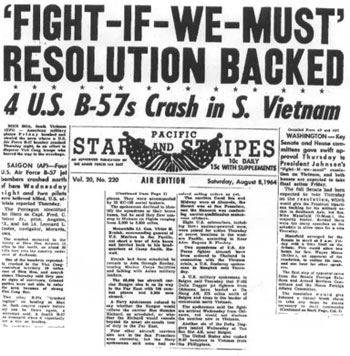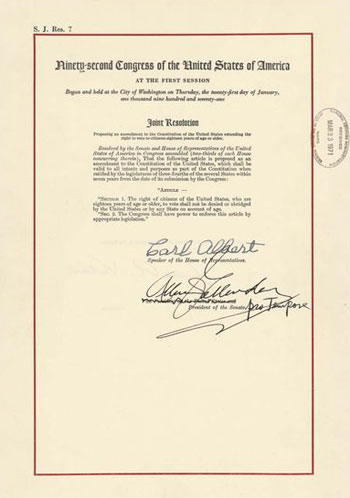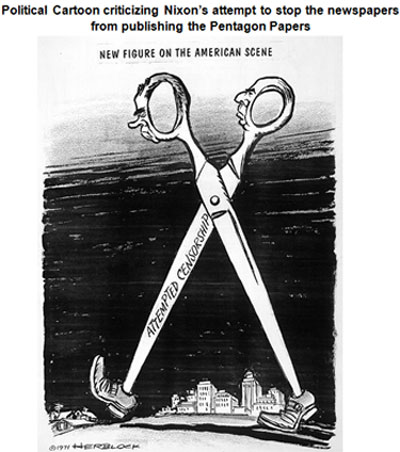
Source: 17 News Fight if we must 3-12-26-01, Wikimedia

Source: 17 News Fight if we must 3-12-26-01, Wikimedia
The Gulf of Tonkin Resolution enabled Presidents Lyndon B. Johnson (1963-1968) and Richard Nixon (1969-1974) to carry out military operations in Vietnam for nine long years. In all that time, Congress never actually declared war against the North Vietnamese (Vietcong). Finally, after committing hundreds of thousands of U.S. troops to Vietnam, growing public discontent over the war, and new revelations that President Nixon was secretly bombing Cambodia, Congress decided to take back its power.
In 1973, Congress began work on a new law that would enable it to gain control over the President's use of military force. They called this resolution the War Powers Act.
In your notes, record three of the MOST IMPORTANT words or phrases that summarize the main idea of the reading above.
If you're 18, you can vote! With the Twenty-Sixth Amendment, Congress lowered the voting age to eighteen years of age. Support for this amendment increased during the Vietnam War as many Americans felt strongly that if citizens can fight for their country, then citizens should have the right to vote as well. With many of the anti-war demonstrations being led by 18-to-21-year-olds, it became obvious that young people ought to play a part in choosing their representatives in Congress.

Source: 26th Amendment Pg1of1 AC, Wikimedia
In your notes, record three of the MOST IMPORTANT words or phrases that summarize the main idea of the reading above.
Beginning on June 13, 1971, the New York Times published a series of top-secret papers from the Department of Defense concerning U.S. involvement in the Vietnam War. These papers became known as the Pentagon Papers. The papers revealed that Presidents John F. Kennedy and Lyndon B. Johnson had authorized a massive military build-up in Vietnam while publicly promising to remove troops. The President at the time, Richard Nixon, tried to stop the New York Times from publishing the secret papers. The Supreme Court ruled that the public had the right to know about the activities of their government. In the wake of this event, the Freedom of Information Act was strengthened in 1974, making it the right of every person to have clear access to public records.

Source: June 20, 1971 Reproduction of original drawing Published in the Washington Post (1971)
In your notes, record three of the MOST IMPORTANT words or phrases that summarize the main idea of the reading above.